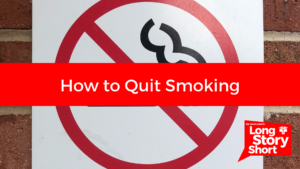Feeling shaken after the storm? You’re not alone.
Experiencing a tornado or an intense storm can leave more than just physical damage—it can deeply affect your mental and emotional well-being. It’s entirely natural to feel anxious, overwhelmed, or unsettled after such events. Fortunately, there are evidence-based strategies to help you navigate the aftermath and care for your mental health.
1. Talk It Out
Sharing your experiences can significantly aid in processing trauma. Engaging in conversations about traumatic events helps in regulating emotions and reducing stress. Discussing traumatic experiences can help individuals find a balance between feeling overwhelmed and feeling numb, facilitating emotional recovery.
Try This: Reach out to a trusted friend, family member, or mental health professional. Even brief conversations can provide relief and clarity.
2. Move Your Body
Physical activity, even in short bursts, can alleviate symptoms of anxiety and depression. A study found that various forms of walking can effectively reduce symptoms of depression and anxiety.
Try This: Incorporate a daily 10-minute walk into your routine. Whether it’s around your neighborhood or in a local park, movement can be a powerful tool for healing.
3. Limit Media Exposure
Continuous exposure to disaster-related media can exacerbate stress and anxiety.
Try This: Set specific times to check news updates and avoid constant scrolling. Engage in activities that divert your attention and promote relaxation.
4. Practice Gratitude
Focusing on positive aspects of your life can shift your mindset and reduce stress.
Try This: Each evening, write down three things you’re grateful for. They can be as simple as a warm meal, a kind gesture, or a moment of peace.
5. Take It Slow
It’s essential to give yourself grace during recovery. Trauma can impact concentration and energy levels. Prioritizing rest and nutrition supports both physical and emotional healing. Adequate nutrition is crucial for brain healing after trauma, emphasizing the importance of rest and nourishment.
Try This: Establish a gentle routine that includes balanced meals, adequate sleep, and moments of relaxation. Listen to your body’s needs and avoid overexertion.
6. Connect with Nature
Spending time in natural settings can significantly reduce stress levels. Just 20 minutes in nature can help lower cortisol levels, the body’s primary stress hormone.
Try This: Visit a local park or green space. Even brief interactions with nature, like tending to a garden or sitting under a tree, can have calming effects.
7. Engage in Mindfulness and Meditation
Mindfulness practices, including meditation, can help ground you in the present moment, reducing anxiety and promoting emotional balance. Research indicates that mindfulness can decrease symptoms of anxiety and depression by enhancing self-awareness and emotional regulation.
Try This: Dedicate a few minutes each day to mindfulness exercises. Simple breathing techniques or guided meditations can be effective.
8. Seek Professional Support
If feelings of distress persist, consider reaching out to mental health professionals. Therapists and counselors can provide coping strategies tailored to your experiences. Seeking help is a sign of strength, not weakness.
Remember: You’re not alone in this journey. Professional support can make a significant difference in your recovery process.
You’ve faced the storm and emerged on the other side. Recovery is a journey, and it’s okay to take it one step at a time.





 and then
and then